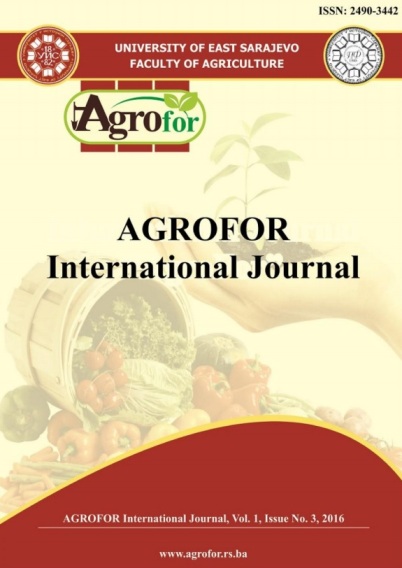SIGNIFICANCE OF THE COMMON AGRICULTURAL POLICY FOR ORGANIC FARMS ECONOMICS IN POLAND
DOI:
https://doi.org/10.7251/AGRENG1603069WAbstract
Accession of Poland to the European Union (EU) has been connected with a
number of benefits, but at the same time, the obligations have been imposed on the
agricultural producers. Farmers are active economic units, that operate on the
common european market, as well as they are beneficiaries of governmental
support. Governmental programmes allowed to take part in measures directed to
agricultural farms development. Farmers have been obliged to comply with
European law and implementation of the desired production standards.Both
regulations and governmental programs have determined the direction of
agricultural holdings development. Especially in the last decade, organic farms
make demanded and fast-growing form of environmental friendly agriculture.
Organic methods use of agricultural production in accordance with soil, plants and
animals requirements, taking care of the other environmental components. Organic
farms fit in with the concept of sustainable development. According to this, organic
production should at least not affect the ecosystems` sustainability and meet the
economic purposes. The purpose of the article is evaluation of organic farms
economics in Poland, taking into consideration influence of the Common
Agricultural Policy (CAP). There were analysed production and economic
condition of organic farms in comparison to all Farm Accountancy Data Network
(FADN) farms. The research were conducted on the basis of indicator analysis,
considering calculation reflected cost, production, economics and subsidies
connected with the Common Agricultural Policy directed to farms. The analysis
was based on FADN 2004 and 2013.

